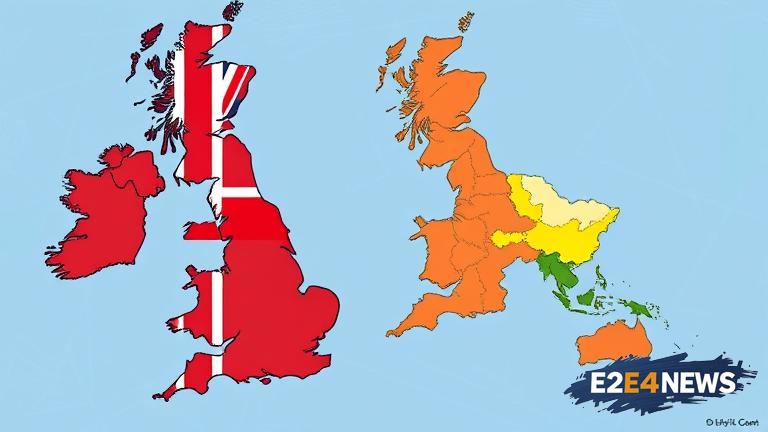The UK government has unveiled a new plan to pay countries to accept deported asylum seekers, a move that has sparked controversy and debate. The plan, which is part of the UK’s efforts to reform its asylum system, aims to reduce the number of asylum seekers in the UK by sending them to other countries. The UK government has stated that it will provide financial incentives to countries that agree to accept deported asylum seekers. The plan has been met with criticism from human rights groups, who argue that it is inhumane and violates international law. They claim that the plan will put asylum seekers at risk of persecution and violence in the countries they are sent to. The UK government has defended the plan, stating that it is necessary to reduce the number of asylum seekers in the UK and to prevent abuse of the asylum system. The plan is part of a broader effort by the UK government to reform its asylum system, which has been criticized for being slow and inefficient. The UK government has also announced plans to increase the use of detention centers for asylum seekers and to introduce stricter rules for claiming asylum. The plan to pay countries to accept deported asylum seekers has been compared to a similar plan introduced by the Australian government, which has been widely criticized. The UK government has stated that it will work with international organizations to ensure that the plan is implemented in a way that respects human rights. However, human rights groups have expressed skepticism about the plan, citing concerns about the treatment of asylum seekers in the countries they are sent to. The plan has also been criticized by opposition politicians, who argue that it is a waste of taxpayer money and that it will not address the root causes of the asylum crisis. The UK government has stated that it will review the plan regularly to ensure that it is working effectively and that it is not causing harm to asylum seekers. Despite the controversy surrounding the plan, the UK government has stated that it is committed to implementing it and to reducing the number of asylum seekers in the UK. The plan has sparked a wider debate about the UK’s asylum system and the treatment of asylum seekers. Many have argued that the plan is a symptom of a broader problem, namely the lack of a comprehensive and humane asylum policy. Others have argued that the plan is necessary to prevent abuse of the asylum system and to ensure that those who are genuinely in need of protection are able to receive it. The plan has also raised questions about the role of international organizations in implementing the plan and ensuring that it respects human rights. The UK government has stated that it will work closely with international organizations to ensure that the plan is implemented in a way that is consistent with international law. The plan has sparked a backlash from some countries, which have expressed concerns about the potential impact on their own asylum systems. The UK government has stated that it will work with these countries to address their concerns and to ensure that the plan is implemented in a way that is fair and humane. The plan has also raised questions about the potential impact on the UK’s relationships with other countries, particularly those that are being asked to accept deported asylum seekers. The UK government has stated that it will work to build trust with these countries and to ensure that the plan is implemented in a way that respects their sovereignty. The plan is likely to be the subject of ongoing debate and controversy in the coming months, as the UK government works to implement it and to address the concerns of critics. The UK government has stated that it is committed to finding a solution to the asylum crisis, but the plan to pay countries to accept deported asylum seekers has sparked concerns about the potential consequences for asylum seekers and the UK’s reputation as a humanitarian leader.





